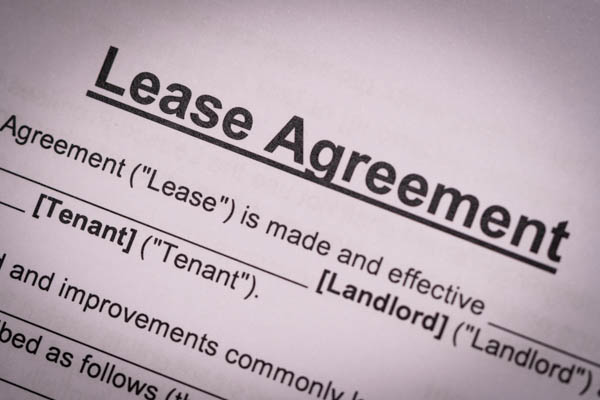Commercial Lease Lawyer Melbourne
Commercial Lease Lawyer Melbourne – When Specialist Advice Really Matters
Look out for the new Retail Leases Amendment Act 2020
Leasing Law is now more complex than ever. The new Retail Leases Amendment Act 2020, which came into force on 1 October 2020, has significantly changed the landscape of commercial tenancy law.
It appears that the new Retail Leases Amendment Act gives commercial Tenants more rights. Commercial Landlords can seek our specialist tenancy advice about what this means for them, and how to navigate the new legislation from a Landlord’s perspective. In this new environment of tenancy law, it is more important than ever to get the right advice before entering into any agreements.
Changes For Landlords & Tenants
There are many new requirements for Landlords and Tenants. Here are some of the most important changes:
- Security Deposits: Security Deposits must be returned by the Landlord within 30 days of the end of the lease
- Disclosure Statements: Landlords are required to provide a Disclosure Statement and a copy of the proposed Lease at least 14 days prior to the commencement of the lease.
- Essential Safety Measures: Retail leases can now require a Tenant to pay or reimburse the Landlord in respect of Essential Safety Measures.
- Renewal of a lease: The process for renewal of a lease has been drastically changed:
- A Landlord’s notification (written notice) of a tenant’s right to exercise an option for a further lease is now not less than 3 months.
- The written notice must set out the proposed rental for the first 12 months of the renewed lease, and details of an early rent review process including cooling off options available to the tenant.
- After the written notice, the tenant may request an early rent review of their commercial tenancy.
- If a valuer is appointed to determine the rent, the tenant has a further 14 days to renew the lease.
- If the tenant elects not to renew the lease , the lease is extended by three months after the tenant’s amended date to exercise the option.
- If the tenant does not elect an early rent review and otherwise exercises an option to renew the lease, the tenant now has a 14 day cooling off period. This will result in the lease being extended by an additional 14 days.
Being strategic in this new environment of tenancy law, is the key for either a Commercial Landlord or Commercial Tenant managing the tenancy to their best advantage and avoiding tenancy disputes.
Calling our Commercial Lease Lawyer will get you on the right track from the outset.


Free Commerical Tenancy Law Checklists To Download
Commercial Tenancy Law in Coronavirus Times

Q. How does the Coronavirus Pandemic affect your Retail or Commercial Lease?
Commercial Leasing – National Cabinet Mandatory Code of Conduct:
The National Cabinet has agreed that states and territories are to implement a Code of Conduct relating to commercial tenancies and the obligations of landlords and tenants during the COVID-19 Pandemic.
Does the Code apply to your Business?
The Code will apply to those businesses eligible for the Commonwealth Government’s JobKeeper programme, capped at an annual turnover of up to $50 million.
However, it may also apply to tenants who do not fit this definition as the Government has made it clear that the Code should apply in spirit to all leasing arrangements.
Legal implications of the Code:
Termination of leases: Landlords must not terminate leases due to non-payment of rent during the COVID-19 pandemic period (or reasonable subsequent recover period).
Commitment to Lease: Tenants must remain committed to the terms of their leases.
Proportionate reduction of rent: If a business has reduced its trade, its rent will be reduced in proportion to how much trade it has lost. Half of this reduction will be waived and half will be deferred for the duration of the lease or for a period no less than 24 months, whichever is greater, eg. if a business has lost 40% of its trade, there will be a reduction in its rent of 40% of which a minimum of half will be waived and the remainder will be deferred.
Landlord’s further reduction requirements: Tenants can apply to have the rent further reduced if the landlord is able to avail itself of any of the following:
reduction in statutory charges;
insurance payments;
deferral of loan payments from a financial institution.
Further obligations during and after the Covid-19 Pandemic: During the COVID-19 pandemic and for a reasonable recover period, the following shall apply to commercial leases:
landlords should waive any expense of the tenant such as outgoings if the tenant stops trading (and the landlord may disconnect services in these circumstances);landlords must not draw on a tenant’s security for the non-payment of rent;
the tenant should be provided with an opportunity to extend its lease for an equivalent period of the rent waiver or any deferral period;
landlords will agree to freeze rent increases.
Q. Personal Property Security Register (PPSR): – How can I secure deferred rentals over my tenant?
The PPSR allows a landlord to register an interest over a tenants’ personal assets to secure any rental deferment. We can advise either the landlord or the tenant regarding their rights and obligations in this regard.
Our trained Lawyers can undertake the registration of such interests on the Register on your behalf.
Q. Mediations during COVID?
If a landlord and tenant cannot come to an agreement on leasing arrangements, the matter can be referred to the Small Business Commissioner, or heard in a private Mediation.
As commercial leasing arrangements vary to a considerable degree, including in respect of the structures, different periods of tenure, and different mechanisms for determining rent, there will be great scope for a landlord or tenant to seek to negotiate leasing arrangements in their own favour to the detriment of the other.
Our tenancy dispute lawyers Melbourne are able to represent you at any Mediation, be it private or through the Small Business Commissioner, and we can act as an independent Mediator if required.
Q. Are Commercial Landlords allowed to delay loan repayments
An announcement has been made that Banks will allow commercial landlords with loans of up to $10 million to delay their loan repayments by up to six months, on the condition tenants are not evicted due to the coronavirus crisis. The banking industry has expanded its support package for business customers. Under the latest changes, businesses with loans of up to $10 million will be able to defer their repayments, up from a previous limit of $3 million.
The law generally:
Clients should be aware of issues that are emerging in the area of retail & commercial leases in the Coronavirus economic crisis:-
- Abatement of Rent clauses
- Force Majeure clauses
- Frustration of leases
- Government Protection measures
- Business Interruption Insurance
Abatement of rent clauses – refer s57 of RCA 2003 (VIC) and lease clauses
Force majeure clauses – in leases if applicable
Frustration of leases – in the absence of an applicable abatement of rent or force majeure clause, an emerging (or re-emerging) issue is whether a lease can be frustrated at common law if the tenant is unable to trade on account of mandatory closures. Whether, and if so when, a lease is frustrated is a difficult legal question.
- This was considered by the High Court of Australia was in Firth v Halloran (1926) 38 CLR 261. The decision did not produce a clear majority on whether a lease is capable of being frustrated;
- In the case of Tim Barr Pty Ltd v Narui Gold Coast Pty Ltd (2010) 14 BPR 27,605, the Judge in that case cited the four-question test of frustration approved by the High Court in Codelfa Construction Pty Ltd v State Rail Authority (NSW) (1982) 149 CLR 337. The four questions are:
(1) What was the substance of the contract, being the assumption or condition or state of things, which was necessary for the fulfillment of the contract?
(2) Was that condition or state of things prevented?
(3) Was the event which prevented the performance of the contract of such a character that it cannot reasonably be said to have been in the contemplation of the parties?
(4) Was the change so unexpected that, if performed, the contract would be radically different from that which was contracted?
The business closures announced suggest that, in the absence of statutory intervention, frustration of leases will rear its head in the near future, particularly if business closures are protracted.
The current state of the law suggests that, in the absence of either a commercial resolution to a tenant being unable to pay rent or legislative intervention, some tenants may fall back on arguments about frustration of their leases in the face of the current crisis.
Tenants should also check their insurance policies as to whether or not business interruption insurance may apply to see if these events are covered.
How can our Commercial Lease Lawyer assist you to negotiate new lease terms under the new Code of Conduct and the new Retail Leases Amendment Act 2020?
Our Commercial Lease Lawyer can assist you with the following:
- Negotiations: Being a party to negotiations to ensure both landlord and tenant negotiate in good faith under the Code of Conduct.
- Financial Information:What turnover information is appropriate and not appropriate for a landlord to request from a tenant? Tenants should be aware what they must present to their landlord by way of documentation to maximize their rental reductions, waivers, and deferments under JobKeeper: AND Landlords should be aware what financial information they have the right to request and what is not appropriate turnover information for a Landlord to request from a tenant to help inform their offer of rent relief. Call us if you would like a list of financial information that details what is appropriate and what is not appropriate.
- Documentation: Parties will need to document all changes to the lease by a Variation of Lease prepared by a Solicitor. We are able to prepare this document on your behalf. These variations will affect the lease now and in the aftermath of the Pandemic.
Further Reductions:Seeking on behalf of tenants to negotiate further reductions from the landlord if the landlord has been the beneficiary of a reduction in statutory charges, a reduction in insurance premiums, or a deferral of loan payments from a financial institution. Assisting landlords to understand what their obligations are in respect of the further reductions requested by tenants. - Deferments of rent secured over tenants’ personal assets on the PPSR: Assisting parties in respect of the securing of a tenants’ personal assets in negotiations for rental reductions, waivers & deferments. Undertaking registrations on the PPSR.
- Mediation: If negotiations break down, we are able to represent you in any private mediation or Small Business Commissioner Mediation. We are also able to act as an independent Mediator.
If you would like to ask further questions from a commercial lease lawyer Melbourne, in relation to any of the above, or require our assistance, please contact our office to speak directly to Jack Cyngler, Accredited Specialist in Commercial Tenancy Law.
Contact Us
Take The First Step - Contact Us
Our friendly CKL team will be in touch shortly.

